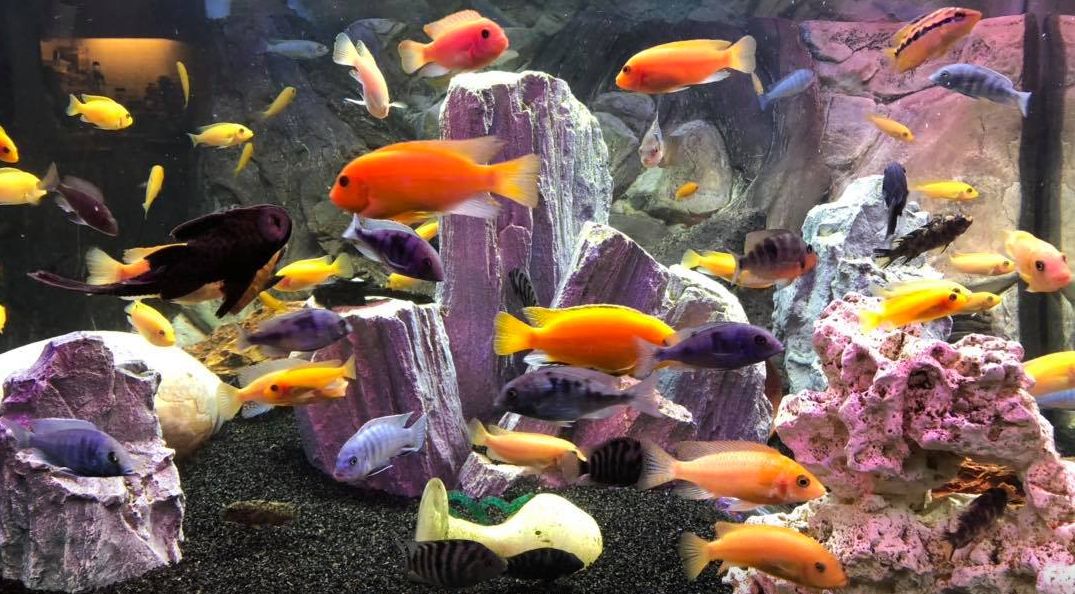
Fishkeeping 101
The Ultimate Guide to Freshwater Fishkeeping and the Nitrogen Cycle
Are you interested in starting your own freshwater aquarium? Whether you're a beginner or looking to improve your setup, understanding the basics of freshwater fishkeeping and the nitrogen cycle is essential for a healthy and thriving aquarium. In this guide, we'll cover everything you need to know to get started on your fishkeeping journey.
What Is Freshwater Fishkeeping?
Freshwater fishkeeping involves maintaining fish, plants, and other aquatic life in a controlled freshwater environment. It's a rewarding hobby that can bring beauty and tranquility to your home. To succeed, you'll need to understand essential concepts such as tank setup, water quality, and fish care.
Essential Tips for Freshwater Fishkeeping
- Choose the Right Fish: Start with hardy species like guppies, tetras, or danios, which are perfect for beginners.
- Proper Tank Size: Ensure your aquarium is large enough for your fish to thrive. Around 1 gallon of water per inch of fish is good measure to go by when starting out but this can vary depending on tank setup and species
- Water Conditions: Maintain appropriate temperature, pH, and water hardness specific to your fish species.
- Filtration and Aeration: Use a reliable filter and aerator to keep water clean and oxygenated.
- Regular Maintenance: Perform weekly water changes and monitor water parameters regularly.
Understanding the Nitrogen Cycle in Freshwater Aquariums
The nitrogen cycle is the biological process that converts harmful waste into safe substances. It is critical for establishing a healthy aquarium environment. Here's how it works:
- Ammonia Production: Fish excrete waste containing ammonia, which is toxic to aquatic life.
- Nitrosomonas Bacteria: These beneficial bacteria convert ammonia into nitrite, which is also toxic.
- Nitrobacter Bacteria: Other bacteria convert nitrite into nitrate, a less harmful substance.
- Nitrate Removal: Regular water changes help eliminate nitrate, maintaining safe water conditions.
Why Is the Nitrogen Cycle Important?
Without a properly established nitrogen cycle, toxic substances can accumulate, leading to stressed or sick fish. Cycling your tank involves providing time and the right conditions for beneficial bacteria to thrive, ensuring a balanced and safe environment.
How to Cycle Your Aquarium
- Fishless Cycling: Add ammonia or fish food to develop beneficial bacteria without harming fish.
- Monitor Water Parameters: Use test kits to track ammonia, nitrite, and nitrate levels.
- Patience is Key: Cycling can take 4-6 weeks; avoid adding fish too early.
Tips to Optimize the Nitrogen Cycle
- Use Seeding: Add established filter media from a mature tank to speed up cycling.
- Maintain Good Water Quality: Perform regular water changes and keep filtration efficient.
- Avoid Overfeeding: Excess food increases ammonia levels and pollutes water.
- Stay Informed: Regular testing helps catch issues early.
Conclusion
Freshwater fishkeeping is a fulfilling hobby that requires knowledge, patience, and commitment. Understanding the nitrogen cycle is vital for creating a safe environment for your aquatic pets. By following proper tank setup, maintaining water quality, and cycling your aquarium properly, you'll enjoy a vibrant and healthy freshwater ecosystem.
Start your fishkeeping journey today and create a beautiful aquatic habitat that brings joy for years to come!